
Fully supportive healthcare, now available to everyone
A deeper dive into Belong.
Healthcare solutions designed for the general population are frequently ill-suited for seniors and complex-needs patients. In many cases, such individuals possess multiple chronic and complex conditions that require more proactive approaches to care. It is often particularly important to prevent these patients from visiting emergency rooms (and, subsequently, from being admitted to hospitals) or from experiencing a worsening of their respective conditions.
Across America, medical care for seniors and complex-needs patients represents a disproportionate share of our healthcare spend: the sickest 5% of Americans accounts for 50% of our total healthcare spending[1].
[1] https://www.healthsystemtracker.org/chart-collection/health-expenditures-vary-across-population/#item-start
Contribution to total out-of-pocket spending by individuals, 2019
But for generations, this demographic has been underserved by existing insurance providers, each of which has developed its offerings, over time, to focus on healthier individuals – and to serve large employers and individual markets. While a few incumbents in the insurance space have chosen to focus on seniors and complex-needs patients, these health insurance providers represent a smaller share of the market and are generally geared towards a narrow set of U.S. geographies.
Today, 28 million members out of an eligible 58.6 million individuals (more than 45% of all Medicare-eligible beneficiaries) are enrolled in a Medicare Advantage plan[1]. As of 2019, Medicare spending in the U.S. was nearly $800bn or 21% of all national health expenditure. With 40% of Medicare enrollees choosing to participate in a Medicare Advantage plan, the current expenditure on Medicare Advantage is approximately $320bn and projected to grow at, on average, 5.6% per year through 2030[2].
[1] https://www.kff.org/medicare/issue-brief/medicare-advantage-in-2022-enrollment-update-and-key-trends/
[2] https://www.cbo.gov/system/files/2020-03/51302-2020-03-medicare.pdf
Total Medicare Advantage Enrollment, 2007-2022
Despite the Medicare Advantage market’s size and growth, few regional plans could be described as mature regarding their current product portfolio and enrollment. Across the country, Medicare Advantage continues to be dominated by large nationals with UnitedHealthcare and Humana owning a combined 46% of the market share.
However, with few exceptions, neither Humana nor UnitedHealthcare is today’s largest provider of health insurance in any given state. In many, if not most, instances, the largest provider of individual, small-, and large-group health insurance is, in fact, a local plan.
The Dual-eligible Special Needs Plan market exhibits similar, if not more compelling, characteristics. Individuals eligible for both Medicare and Medicaid (Dual-eligible individuals or “Duals”) are the largest cohort of Medicare-eligible individuals. This population is growing faster than the broader Medicare Advantage population. According to a 2019 report by LEK Consulting, the number of individuals eligible to enroll in a DSNP annually grows by more than 10%[1]. Beneficiaries enrolled in Special Needs Plans also account for 16% of total Medicare Advantage enrollment in 2022, which is up from 11% in 2011.[2]
[1] https://www.lek.com/insights/ei/medicare-advantage-penetration-drivers
[2] https://www.kff.org/medicare/issue-brief/medicare-advantage-in-2022-enrollment-update-and-key-trends/
Despite enrollment growth in SNPs, dual-eligible plans have only incrementally improved to meet the social and clinical needs of these individuals. Dual-eligible patients qualify for both Medicare and Medicaid and are typically the most complex, vulnerable, and underserved consumers of healthcare. To qualify for both programs, an individual is almost certainly experiencing two of the following three characteristics old age, disability (physical, mental, or behavioral), or impoverishment. Without adequate access to high- quality healthcare or social support, these members are primed to spiral out of control and ultimately overuse emergency and other high-cost services. Generally, overreliance on such services is not due to recklessness or to intentional self-neglect, but rather to a categorical lack of access to basic support structures that most people take for granted.
Superior and lower-cost alternative choices could and should be offered to dual-eligible individuals to both improve and stabilize their daily lives. Regardless of where anyone may fall on the economic spectrum, no one wants to go to the hospital when doing so isn’t required.
That’s why Belong Health is here.
Belong Health provides regional health plans with specific expertise and technology required to design, build, and launch leading Medicare Advantage products that work in service of the most complex, vulnerable, and underserved members of society. Belong Health’s technology-enabled service is comprised for four components: Provider Engagement, Clinical Model, Analytics Platform, and Technology Infrastructure.
Provider Engagement
Strong provider relationships are essential to the quality of care we provide our members on a cost-effective basis. The Belong Health provider engagement model groups providers into regional Physician Organized Care Delivery Systems (PODS) and establishes incentive arrangement that align their interests with our objective of providing high-quality, cost-effective healthcare. With the right insights, Belong Health will meaningfully improve engagement with providers on topics that matter to our mutual bottom lines. By fostering a collaborative, interactive relationship with our provider partners, Belong Health ensures each partner truly works in concert across clinical care coordination and delivery teams united by common purpose.
Clinical Model
The Belong Health care model incorporates three key elements: collaboration, integration, and navigation.
Collaboration: A high level of collaboration is required among clinicians who fully incorporate behavioral health specialists into a patient’s care team and process. These valuable specialists include social workers, psychiatrists, psychologists, and other licensed clinical professionals.
Integration: Fully integrated care fills a critical gap in the traditional healthcare system by providing high-touch, behaviorally informed, coordinated medical attention. By specializing towards a patient's social needs, integrated care ensures patients don’t fall through the cracks of a dispassionate and often convoluted system.
Navigation: Every member in the model is personally welcomed and guided through goal-setting exercises to align the care team with that member. The care team will then use Belong Health’s data-led analytics tools to assess the patient’s risk across clinical, behavioral, and social domains and to, accordingly, identify key drivers of poor health outcomes and target interventions.
Analytics Platform
By understanding the practice patterns and performance of the clinical assets that interact with members within their community, Belong Health can appropriately serve our members’ medical, pharmacological, financial, and social needs. To develop a view of each member’s unique care needs, we will aggregate claims data, network rosters, and risk and gap reporting from our partners. These data can be visualized into clinical and administrative dashboards that provide users with quality logic and with trained machine learning and artificial intelligence models which automatically promote the top actionable opportunities and insights to the user. No major health insurance company in the market uses such technology to inform decisions at scale.
Technology
In service of our care model, it is of utmost importance that we have extensive capabilities to ingest, clean, normalize, and distribute various data types — including but not limited to Administrative (claims, eligibility), Clinical (ADT, CCDA), and Socioeconomic data — in near real-time. Our entire technology architecture is conceptualized with this core principle in mind.
Our focus on platform flexibility will allow us to integrate with our partners and seamlessly exchange data to develop key insights that we may deliver directly to the point of service. One of the main drivers of differentiation in our model will be our set of superior and market-proven practices around comprehensive and frequent member documentation.
Conclusion
Building a nationwide Medicare Advantage platform is no small task – and Belong Health is taking the appropriate steps to ensure a solid foundation is built. Belong Health is eager and ready to help regional health plans to deliver the most innovative care models in the nation – ones that comfortably fit the specific needs of their communities and are fully in service to their members.